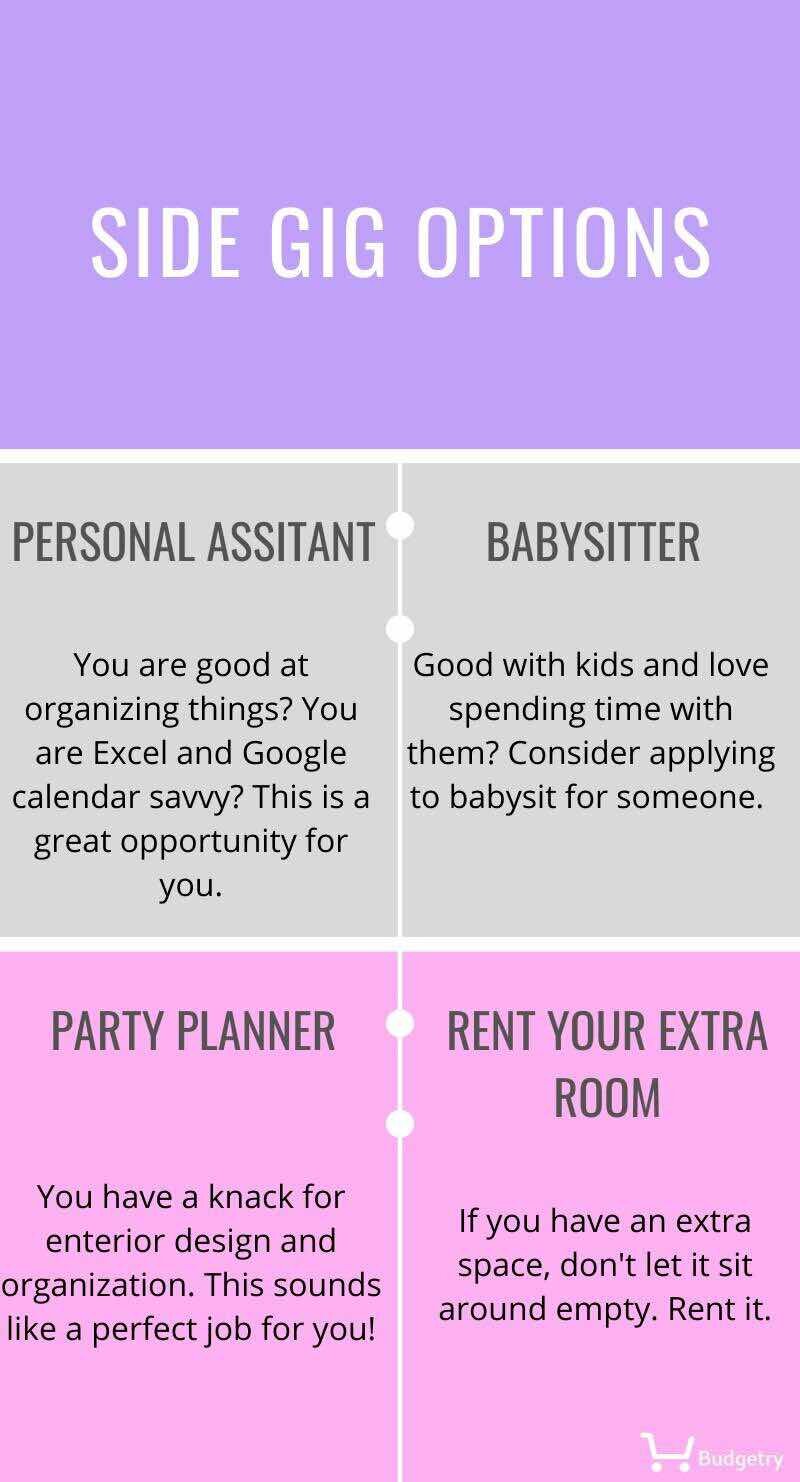The Goal to Save For Retirement Never Gets Old
One of the best things you can do for your future is save for retirement. It's never too early to start saving for the future. Far too many consumers wait too long to start thinking about retirement. If you wait too long, you put yourself at risk of financial insecurity down the road. Unfortunately, we may not be able to rely on social security to provide complete support in the future. That's why it's so important to set up independent savings for retirement.
YOU ARE YOUNG AND YOU JUST GOT YOUR FIRST JOB WHEN YOU REALIZE THAT…
THE TIME GOES BY QUICKLY AND THAT YOU HAVE TO START THINKING ABOUT YOUR FUTURE NOW!
Reasons to Begin Thinking About Retirement Now
If you haven't already started to save for retirement, you should consider doing so now. Everyone should begin thinking of retirement once they have money to set aside. Not only is planning for retirement important but just generally growing a savings fund is important too.
There are numerous reasons why starting to save now is something you should look into. Saving for retirement is the responsible thing to do. It allows you to plan financially for the future. The following are two other big reasons why you should begin retirement savings now.
The Longer You Have to Save, the Better of You'll Be
It takes a long time to prepare for retirement. When it comes to retirement savings, you really don't want to be waiting for the last minute. You want to save for retirement for a long time. For most people, it takes several decades to save for retirement.
If you have longer to save for retirement, you can expect a better quality of life during retirement. No one wants to experience financial problems in their old age. Those who are unprepared for retirement often struggle to support themselves without working. After working all your life, you'll want to be able to enjoy a peaceful, worry-free retirement.
Some Day You May Not Be Able to Continue Working
Many people think they simply won't retire. They think they don't need retirement savings because they'll just continue working. However, this is not possible for everyone. Your health needs to hold up for you to continue working. Also, you might change your mind down the road. You might enjoy working at the moment. But things could change 15 years from now.
Start saving for retirement now and you'll at least have the option to retire down the road. If you decide to keep working, you'll just have more savings available.
The future always involves some level of uncertainty. You don't want to let the uncertainties of your life catch you off guard. That's one of the many reasons you should start saving for retirement now.
How to Start Preparing for Retirement
So you've decided you want to save for retirement. That's great! It's time to get started. You might be uncertain of how to proceed. To plan your retirement savings as efficiently as possible, there are some steps you'll want to go through.
You want to plan carefully. Saving for retirement is a big job. Looking at the big picture when you make your plans can make things easier. The following are six things to do as part of planning for retirement and executing your plans.
Set Goals
In the beginning, you want to set your retirement goals. Consider what you expect to save by the time you retire. This requires you to look at your income. It also requires you to consider your lifestyle. If you are a big spender and want to maintain your standard of living, you'll need to save a lot for your retirement.
When you're setting goals, you need to consider when you want to retire. If you want to retire young, you have less time to save up. Be realistic about your goals. We all want to retire young as multimillionaires. However, this isn't always feasible. Try not to get carried away. If your goals are unrealistic, you may get discouraged and give up.
Calculate Your Needs
It's worthwhile to crunch the numbers and do some calculations. Figure out exactly how much you should have saved up before you retire. Factor in the costs of owning your home. Also, consider funds you'll need to contribute toward the support of any dependents you have.
Retirement is different for everyone. Some individuals have more needs in retirement than others. The best way to plan for your future is to calculate your needs. Only you can determine your unique needs and expectations. Just remember that the more you want to have in retirement, the longer it will take you to save. You can retire significantly earlier if you can manage to be more frugal now and in the future.
Consider your time frame
How old do you want to be when you retire? Determining how old you want to be will help you set retirement goals by age. The younger you want to be when you retire, the faster you need to save.
Once you decide the age at which you want to retire, you can set intermediate goals. Determine how much you need to save by the time you're 40, 50, and 60. Saving for retirement is not going to happen overnight. It's going to take years of concentrated effort. Yet making your plans now is the first step to success.
Develop a Budget
Having a good budget in place is essential to achieving all kinds of financial goals. Your budget is a plan for how much you'll earn, spend, and save each month. When planning out your budget, figure out what your income is every month. Then, determine what your necessary and avoidable expenses are. Minimize both types of expenses to have as much money left over for saving as possible. Yet before you save, use your excess funds to pay off your debt.
You need to be disciplined to stick with your budget. Like most people, you'll probably be tempted to spend more than you should once in a while. Resist temptation and stick to your budget to realize your retirement goals.
Leverage Available Resources
You might not realize all the resources you have to help save for retirement. Being aware of these resources makes saving for retirement easier. You need to take advantage of the tools that will help you save faster.
Retirement resources come from a variety of sources. In particular, you should explore retirement resources from your employer and your financial institution.
Resources from Your Employer
Your employer may offer some retirement savings programs. If you're lucky, your employer will offer you a pension. Having a pension from your employer makes planning for retirement easier. If you are earning a pension, you'll get paid a fixed amount of money each month once you retire. Although pensions are great for retirement, they are becoming increasingly rare nowadays. Unless you work for the government or one of a few select companies, you probably won't collect a pension when you retire.
On the other hand, most employers offer a 401(k) plan these days. These savings plans are also very helpful when it comes to retirement savings. When you have a 401(k), your employer sets aside money from your paycheck. This money gets invested. This means your 401(k) funds will grow with the market over time.
Ideally, your employer will offer 401(k) matching. This means your employer contributes to your 401(k) account along with you. Use 401(k) matching to get more out of your job. Over time, 401(k) matching can allow your retirement fund to grow quickly and effortlessly.
Resources from Your Financial Institution
Your employer isn't the only source of retirement assistance. Your bank or credit union might also be able to help you plan for retirement. If you are self-employed, you don't have the employer resources mentioned above available to you. However, you can take advantage of an independent retirement account (IRA) from your financial institution. You can also discuss independent 401(k) accounts and annuities with your financial institution to find the best option.
Put Aside Some Money Every Month
You'll save for retirement by putting a little money aside at a time. Get into the habit of saving regularly. Start by setting aside retirement funds each month. When you develop a budget, you figure out how much you can save monthly.
Automatic Savings
The best way to save is automatically. You should set up a system that allows money to automatically be deposited into your savings account. And if you do not yet have a savings account, what are you doing with your life?! I’m kidding. But not completely. Opening a savings account is one of the best and easiest ways to save money.
You could arrange for automatic savings with your employer. Ask to switch your direct deposit settings to make automatic deposits of some of your pay into your savings account. This way, your savings will never hit your checking account. Automatic savings help prevent the temptation to spend money you should be saving.
Track Your Progress Over Time
Don't make the mistake of overlooking the progress you're making. This is a great way to become discouraged. You need to track your progress. Again, saving for retirement is something that takes a long time. You need to persist in your goals to achieve them.
Celebrate the Achievement of Goals
As you save for retirement, it's important to celebrate your intermediate achievements. When you've reached a savings goal, it's time to treat yourself. Celebrate with a special vacation or a big, fun purchase. Treating yourself helps you stay engaged and motivated regarding your retirement savings plan. Make sure you're allowing yourself to have some fun as you save.
Maximize Your Earnings
You can save for retirement more quickly if you can make more money. Consider ways that you can increase your earnings. Perhaps you can take on more hours at work. If not, you might apply to new job opportunities that pay more. Hopefully, you get periodic raises at work so that you bring home increasingly more money over time.
Additional Income Streams
If you cannot increase your earnings at your regular job, you might consider additional income streams. Perhaps you can work a second job on evenings or weekends. Be sure to take advantage of investment income whenever possible.
Running Your Own Business
You might also increase your income by running your own side business. There are many possible side businesses you could consider. If you're interested in real estate, you might try buying a rental property or flipping houses. Consider any skill you have that you could make money from on the side.
Motivate Yourself
Keep your eye on the prize as you save for retirement. In life, it's unfortunately difficult to remain concentrated on a goal for a long period of time. Yet this is a necessity for those who are saving for retirement. Do what you can to keep yourself motivated as time goes on. Just imagining the satisfaction of going in to work for the last time could provide much-needed motivation.
Mistakes to Avoid
Unfortunately, a lot of consumers make big mistakes as they save for retirement. These mistakes can make it much more difficult than it has to be to retire. You need to be aware of the common mistakes upfront. This way, you can concentrate on avoiding these mistakes. Making mistakes can compromise your ability to retire when you want.
The following are four of the most common retirement savings mistakes that consumers make.
Failing to Invest
Don't waste time and money by keeping your savings in a savings account. A savings account may accumulate a small amount of interest. However, it's important to realize that this interest rate might not even keep up with the rate of inflation. This means that you could in effect lose money over time by just leaving funds in a savings account.
You should be investing your retirement savings. You could earn a good amount of money over time if you invest in an index fund like the S&P 500. Take advantage of compound interest by reinvesting your interest earnings. This is the best way to see your savings grow over time.
Getting Distracted
Staying focused is important to meeting your retirement goals. Unfortunately, it's easy to get distracted over time. You're going to come across things you want to spend money on other than retirement savings. How well you resist distractions will determine how successful your retirement savings plan is.
Letting Setbacks Get You Down
Another thing that will happen as you save for retirement is setbacks. As time goes on, you're going to experience setbacks like economic downturns. You might even lose your job. However, you have to stay motivated and proactive despite the setbacks that come up.
Overcome the setbacks to get back on track. A setback like a job loss seems terrible at the time. However, in the long run it will be less consequential than you think. Let setbacks motivate you to work harder rather than becoming discouraged.
Taking on Too Much Debt
It's important to concentrate on minimizing debt while you save for retirement. In fact, your first step should be paying off all your debt. When you carry debt, you have to pay interest expenses. Becoming debt-free is important. Try to avoid borrowing whenever possible. If you do borrow, limit borrowing to acquiring valuable assets like a home. Then, pay off any mortgage loan or other type of loan as quickly as possible.
Achieve Your Financial Goals with the Goalry Mall.
All Your Money Related Questions Answered in One Place.
Finally,
You can begin to save for retirement today. Even if you don't have much money to put aside, start now! Just being conscious of the importance of saving will influence your spending habits. In the long run, this will pay off. Develop good savings habits and you'll make a comfortable retirement a reality.
Starting a retirement fund can give you peace of mind. Even if your retirement is a long way off, it's still good to start establishing financial independence. Financial independence takes time to build. There are so many reasons why retirement savings are important. You never know what the future holds. Having retirement savings protects you from the uncertainty of the future.
It's time to develop your retirement plan. Figure out what resources can help you retire at your convenience. It feels great to be able to retire when you like. Maintain your standard of living throughout your retirement by starting your savings plan today!







